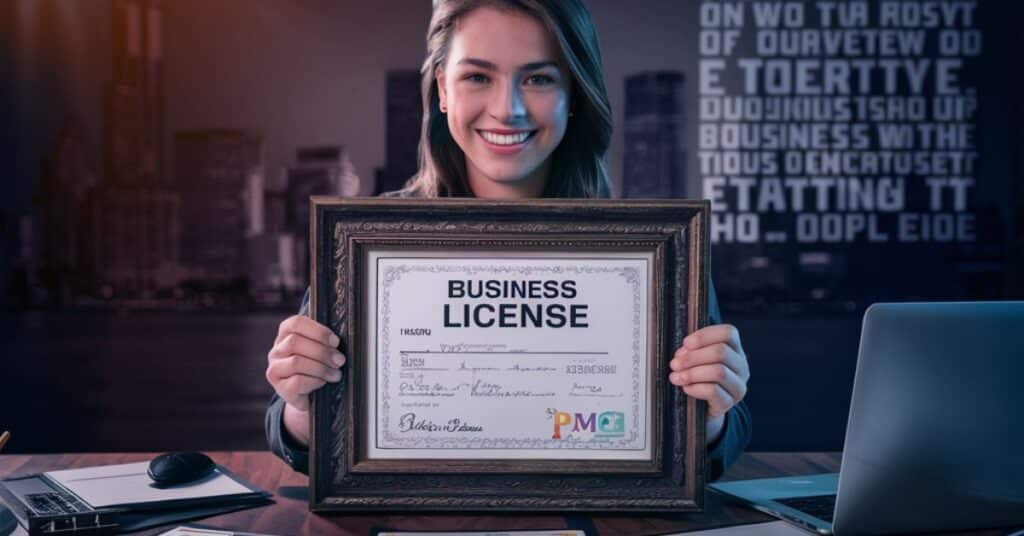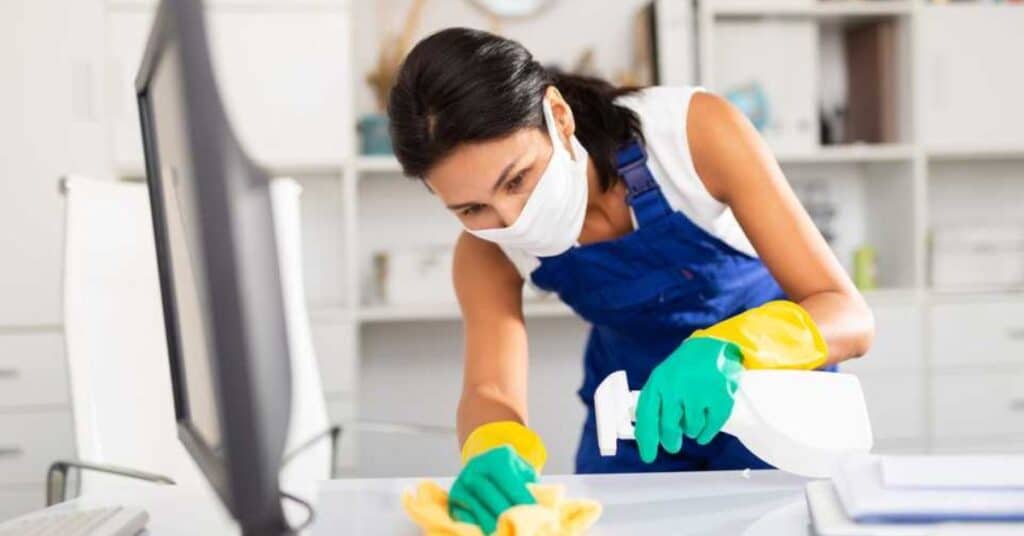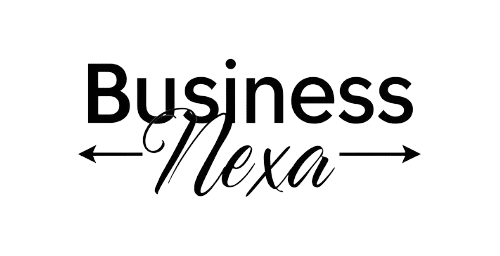Starting a cleaning business you’ll need licenses. But which ones well it depends on where you’re setting up shop. Generally you’ll need a business license and maybe a special permit for cleaning services. Let’s dive into the specifics.
Thinking about starting a cleaning business you’ll need to sort out licenses first. These licenses vary depending on your location. They typically include a business license and possibly a specific cleaning license. Before you dive in make sure you’re clear on what’s required in your area.
Do I need a license for my cleaning business?
When starting a cleaning business, one common question is whether a license is needed. In many areas, a business license is necessary to legally operate. This license can typically be obtained from your local government office. It’s essential to research the specific requirements in your area to ensure compliance with regulations.
Additionally depending on your location, you may need a cleaning service license. This license may have specific requirements and fees associated with it. It’s essential to check with your local authorities or regulatory agencies to determine if this license is necessary for your cleaning business.
Furthermore obtaining insurance such as liability insurance is often crucial for protecting your business and clients. Insurance requirements may vary depending on your location and the type of cleaning services you offer. Before launching your cleaning business, it’s essential to thoroughly research and understand the licensing and insurance requirements to operate legally and responsibly.
What can I do without a license?
Without a license there are still plenty of things you can do to earn money. You could offer services like pet sitting house cleaning, or lawn mowing. Many freelance gigs like writing or graphic design don’t require a license either. However it’s crucial to research any legal requirements or restrictions in your area before starting any business venture without a license.

You can also explore hobbies or crafts that could turn into a small business like making handmade jewelry or selling homemade baked goods. Online platforms offer opportunities to sell handmade or vintage items without needing a license. Just remember to follow any local regulations regarding home based businesses especially regarding food handling or safety regulations.
If you’re interested in teaching or tutoring, you might not need a license depending on your area and the subject matter. Many individuals offer tutoring services in various subjects without formal teaching credentials. However it’s essential to provide quality service and build a positive reputation to attract clients regardless of licensing requirements.
How long does it take to get a cleaning business license?
Getting a cleaning business license usually takes a few weeks to a couple of months. First you’ll need to research the specific requirements in your area. Then, gather all the necessary documents and fill out the application. Once you submit your application it goes through a review process by the local government or licensing authority.
After submitting your application, the processing time can vary. Some areas have faster turnaround times while others may take longer due to a high volume of applications or additional requirements. During this time you may need to undergo inspections or provide additional information before your license is approved.
How much does a business license cost?
Getting a business license varies in cost depending on where you’re located. Generally the fee ranges from $50 to $400. This fee covers the administrative costs of processing your license application.

Keep in mind that the cost may differ based on factors like your business’s location industry and the type of license you need. Larger cities tend to have higher fees than smaller towns. It’s essential to research the specific requirements and fees in your area.
Remember while the initial cost may seem like an expense, obtaining a business license is crucial for operating legally and building trust with your customers. Always budget for this expense when planning to start a business.
Does a business license increase your earning potential?
Getting a business license can boost how much you earn. It adds credibility, making customers trust you more. With a license you can bid for bigger jobs and work with larger clients increasing your earning potential. Plus it shows you’re serious about your business attracting more customers who are willing to pay for quality services.
Understanding the Role of a Business License
Having a business license can definitely boost your earning potential. It gives your business legitimacy and credibility making potential customers more likely to trust and hire you. With a license you can also access certain opportunities and contracts that might require proof of licensure which can expand your client base and increase your revenue opportunities.
Moreover a business license often opens doors to partnerships and collaborations with other businesses allowing you to tap into new markets and reach more customers. Additionally being licensed may enable you to charge higher rates for your services as it demonstrates your commitment to professionalism and quality thus enhancing your earning potential in the long run.
Exploring the Impact on Earning Potential
When you explore the impact on earning potential you’re looking at how your choices affect how much money you can make. It’s like mapping out the road ahead to see where it leads financially. Factors like education skills and career choices play a big role in shaping your earning potential. By understanding these factors you can make informed decisions to maximize your income over time. So exploring this impact is key to setting yourself up for financial success.
Assessing the Value of Licensing in Business Growth
When thinking about growing your business, it’s crucial to assess the value of licensing. Licensing can open doors to new markets and increase brand recognition. By licensing your product or service, you allow others to use your intellectual property in exchange for royalties or fees.
Examining the Relationship Between Licensing and Revenue
| Points | Details |
| Revenue Increase | Licensing agreements can lead to a boost in revenue through royalties and licensing fees. |
| Market Expansion | Licensing can facilitate market expansion by allowing products or services to reach new regions or demographics. |
| Brand Exposure | Licensing agreements can enhance brand exposure by associating your brand with reputable partners or products. |
| Cost Reduction | Licensing may reduce costs associated with product development, manufacturing, and distribution. |
| Risk Mitigation | Licensing can spread risks by sharing them with licensees, reducing the financial burden on the licensor. |
Unveiling the Potential Benefits of Obtaining a Business License
Getting a business license can bring several perks for your venture. Firstly it adds a layer of legitimacy boosting trust among customers and partners. Secondly it ensures compliance with local laws and regulations keeping you on the right side of the legal fence.
Additionally having a business license may open doors to certain opportunities like bidding for contracts or accessing resources reserved for licensed businesses. Overall obtaining a business license is a smart move that can pave the way for growth and success in your entrepreneurial journey.
How to get a cleaning business license: state-by-state

Interested in starting a cleaning business knowing how to obtain a cleaning business license state by state is crucial. Let’s delve into the specifics of this important step in launching your venture.
Alabama: Getting Your Cleaning Business License
Starting a cleaning business in Alabama involves applying for a business license through your local government. Make sure to check for any additional permits or certifications needed, such as those related to environmental regulations.
Alaska: Securing Your License for a Cleaning Business
To start a cleaning business in Alaska, register with the state and obtain a municipal business license. Depending on your services, additional permits may be required, especially for handling hazardous materials.
Arizona: Steps to Launching Your Cleaning Venture
Register your business with the Arizona Corporation Commission and obtain necessary city or county licenses. Research and comply with all local regulations, including those related to environmental and safety standards.
Arkansas: Getting Legal with Your Cleaning Business
Begin by obtaining a state business license from the Arkansas Secretary of State’s office. Check for additional city or county licenses required and ensure compliance with relevant regulations.
California: A Guide to Your Cleaning Business License
Start by obtaining a state business license and researching additional local permits. Comply with all laws, including those related to employment, safety, and environmental protection.
Colorado: Starting Your Cleaning Business Right
Register your business with the Colorado Secretary of State’s office and obtain a state business license. Check for municipal or county-specific licenses and comply with industry standards and environmental regulations.
Connecticut: Navigating Licensing for Your Cleaning Business
Register your business with the Connecticut Secretary of State’s office and obtain local licenses as needed. Ensure compliance with all relevant regulations for a successful venture.
Delaware: Launching Your Cleaning Business Legally
Register your business with the Delaware Division of Revenue and obtain a state business license. Check for any municipal or county-specific requirements and comply with environmental regulations.
Florida: Steps to Start Your Cleaning Business
Obtain a state business license from the Florida Department of Business and Professional Regulation. Research and comply with all local regulations for a successful business launch.
Georgia: Foundation for Your Cleaning Business Success
Obtain a state business license from the Georgia Secretary of State’s office and check for local licensing requirements. Comply with all regulations, including those related to insurance and employee safety.
Start your cleaning business career
Starting your career in the cleaning business is simpler than you might think. Begin by researching your local regulations for business licensing requirements. Next, consider obtaining liability insurance to safeguard your business and clients. Once you’ve met these basics, it’s time to roll up your sleeves and dive in.

Embark on your journey by offering your cleaning services to friends, family and neighbors. Word of mouth recommendations can be powerful in building your client base. As you gain experience and confidence you can explore expanding your services and marketing efforts to reach a wider audience. Remember every successful cleaning business started with a single step so don’t hesitate to take that first leap.
Frequently Asked Questions
What type of license is required to start a cleaning business?
Typically you’ll need a business license from your local government to operate legally.
Are there specific cleaning service licenses needed?
Depending on your location’s regulations you might need a cleaning service license in addition to a business license.
Do I need insurance for my cleaning business?
It’s often necessary to have insurance such as liability insurance to protect your business and clients.
Are there any other permits required?
Check your local laws and regulations as you may need additional permits like health permits or environmental permits.
How can I ensure I have all the necessary licenses and permits?
Research your local requirements thoroughly and consult with relevant authorities to ensure compliance before starting your cleaning business.
Conclusion
Launching a successful cleaning business requires navigating through various licensing and permit requirements. Securing a business license from the local government is typically the first step ensuring legal operation. Additionally depending on the specific regulations in your area obtaining a cleaning service license may also be necessary.
Insurance especially liability insurance is vital to protect your business and clients in case of accidents or damages. Furthermore it’s essential to consider any other permits required such as health or environmental permits, to ensure compliance with local laws.
By thoroughly researching and fulfilling all necessary licensing and permit obligations before starting your cleaning business, you set a solid foundation for long-term success and credibility in the industry. Always stay informed about any updates or changes in regulations to maintain compliance and uphold the integrity of your business operations.

Alexander K. Barry, an experienced author with five years in business, explores the intricate dynamics of entrepreneurship, management, finance, and innovation through insightful narratives and practical wisdom.







